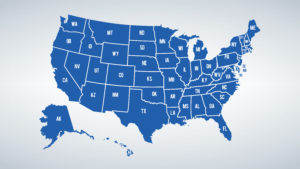Sales Tax Deduction Option, State and Local
[vc_row][vc_column][vc_column_text]
Sales Tax Deduction Option, State and Local
The Tax Relief and Health Care Act of 2006 extended the election to deduct state and local general sales taxes for 2006. The act was enacted after Schedule A (Form 1040), Itemized Deductions, and its instructions were printed. Because we were not able to include the instructions for figuring the deduction in the Schedule A instructions, we are providing this publication to help you figure this deduction.
You can elect to deduct state and local general sales taxes instead of state and local income taxes as a deduction on Schedule A. You cannot deduct both. To figure your deduction, you can use either:
- Your actual expenses, or
- The optional sales tax tables plus the general sales taxes paid on certain specified items.
IRS Publication 600, Optional State Sales Tax Tables, helps taxpayers determine their sales tax deduction amount in lieu of saving their receipts throughout the year. Taxpayers use their income level and number of exemptions to find the sales tax amount for their state. The table instructions explain how to add an amount for local sales taxes if appropriate.
Taxpayers also may add to the table amount any sales taxes paid on:
- A motor vehicle, but only up to the amount of tax paid at the general sales tax rate; and
- An aircraft, boat, home (including mobile or prefabricated), or home building materials, if the tax rate is the same as the general sales tax rate.
For example, the State of Washington has a motor vehicle sales tax of 0.3 percent in addition to the state and local sales tax. A Washington state resident who purchased a new car could add the tax paid at the general sales tax rate to the table amount, but not the 0.3 percent motor vehicle sales tax paid.
Taxpayers will claim the deduction on line 5 of Schedule A, checking a box to indicate whether the amount represents sales tax or income tax.
While this deduction will mainly benefit taxpayers with a state or local sales tax but no income tax — in Alaska, Florida, Nevada, South Dakota, Texas, Washington and Wyoming — it may give a larger deduction to any taxpayer who paid more in sales taxes than income taxes. For example, you may have bought a new car, boosting your sales tax total, or claimed tax credits, lowering your state income tax.[/vc_column_text][/vc_column][/vc_row]
India Teaming Up With United States in Joint Effort to Find Hidden Cash
India is reportedly going after so called “black money” which Indian citizens who are living abroad, are apparently hiding in offshore accounts, including here in the United States. According to reports, the Indian Government believes that as much as $350 billion is hiding in unreported bank accounts and other financial institutions. India is already gathering…
Is Your Company in the Market for a Fairness Opinion?
Is Your Company in the Market for a Fairness Opinion? Is that really fair? In my opinion, yes it is. Obviously a fairness opinion is much more than that in the financial and business world. So what is a fairness opinion, exactly? One of the final parts of any sale or merger is a fairness…
Communication Between Managers and their Employees
By Emily Topham Communication Between Managers and Their Employees Managers have a daunting task—finding the right level of communication between them and their employees. It can be difficult for new managers to transition into the level of communication that is required by a leadership position. But discovering how to communicate well can make or…
Which States Are Good, and Bad, for Taxes?
How attached are you to the state you live in? Although most people would rather not relocate, where a person lives can actually make a huge difference in his or her tax bill. That’s because Kiplinger recently released its list of the most and least “tax-friendly” states when it comes to taxes. The business publisher…



